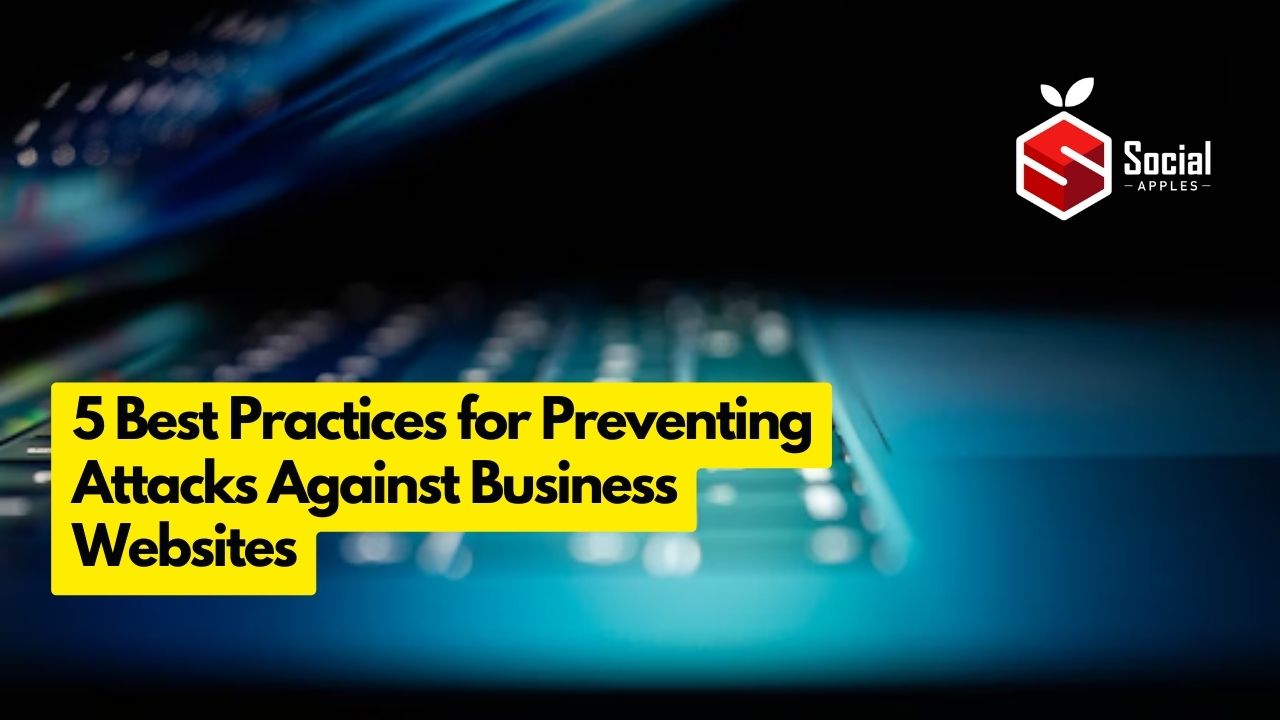Over the last few years, cyber-attacks have increased in sophistication. Today, it is not uncommon to hear that a vital website, such as a hospital or an airline, has been hacked. These are organizations that have tons of resources at their disposal. By extension, this means that smaller websites that don’t have many resources are at an elevated risk of being hacked. Luckily, there are steps that a business can take and minimize these risks. This article explores the 5 best practices for preventing attacks against business websites.

Contents
Engage the services of a vulnerability management service
One of the best ways to guard your website against attacks is to keep track of all potential vulnerabilities. One of the ways to do this is by engaging the services of a vulnerability management company. The best vulnerability management companies have a massive database of vulnerabilities, and a cve vulnerability search can give you a list of areas to improve. Besides, the best vulnerability management companies offer you plugins to integrate into your website for real-time threats management.
Avoid suspicious mail
One of the tools in a hacker handbook is your company email. Such emails have links that, once clicked on, install malicious software on your computer. To avoid such issues, have a company policy that any suspicious email should permanently be deleted unopened. You can also deal with this issue by installing software that automatically detects suspicious emails and deletes them to avoid a situation where someone may mistakenly open them. This simple step alone could go a long way in protecting a business website from becoming a victim of a hacking attack.
Always use antivirus tools.
When running a business website, always install antivirus software on all computers in your office. The best antivirus tools combine both virus protection and antimalware protection. While sophisticated malicious software can overrun even the best antivirus tools, your company website stands a much better chance when you have the right antivirus tools installed in your office computers. That’s because office computers stand the most significant risk of being an entry point into your business website.
Sensitize your employees on the importance of cybersecurity
When looking to attack a website, a hacker looks for the tiniest of vulnerabilities that can be exploited. This can range from carelessly stored passwords to accessing ads that may have hidden spyware in them. To avoid such issues, ensure that your employees know cybercriminals’ threats to business websites. By sensitizing them on the risks, and how to avoid them, you can go a long way in preventing your website from being hacked. Also, check out Best Free VPN For School WiFi
Use data backups
Lastly, ensure that all critical company data is always backed up offline. Even with all the protective measures that you take, there is always the risk that your company website can get compromised. To ensure that you are safe when this happens, invest in backup systems, both offline and also in cloud-based services. The goal is to ensure that even if you get attacked and data is lost, you can always restore it and get your company back working. To avoid the tedious task of backing up data, you can set up systems that ensure the data is backed up automatically as it passes through the company website.
Recap
With increasingly sophisticated cybersecurity threats, it is in a company’s best interest to identify ways to protect its websites from cyberattacks. By taking the above-mentioned steps, you can be sure that your business website is protected, and even if a hacker manages to penetrate it, you can always recover data. The goal is to be safe, and when safety is compromised, to have a fail-safe mechanism in play.













